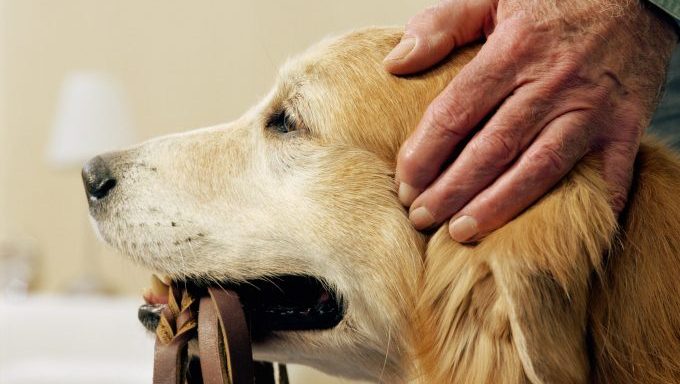
For many, dogs can be more than pets. They are our beloved family members, our companions, and our best friends. And let’s face it, some of us like our dogs even more than our relatives. There is no limit to the love we share with our pups. While it’s true that no one really likes to talk about what happens in the case of death, who might care for your dog after you’ve crossed the rainbow bridge is very important to consider. Including directions for the care of your pet in your will is one way to help ensure their well-being after you’re gone. Here’s how to include your dog in your will.
Choose a guardian for your dog
Pets are legally considered property and belong to your estate, similarly to other property you may own. In your will, you will name a beneficiary for your pet. This entrusted person will be known as your “pet guardian” and will assume the responsibility of caring for your beloved pet after you’re gone.
Because this person will be entrusted with such a large responsibility, you may want to make additional considerations when considering your pup’s new guardian. You will want to choose someone you know and trust, and who is reliable and responsible. Caring for a pet is a large responsibility, as can be costly. While a dear friend may want to accept the role out of love for your memory, they may not be in a secure financial or emotional space to care for your pet. It is always advised to have this discussion with this beneficiary before you name them in your will.
To name your dog’s guardian in your will, you will first specify the recipient. This may be a sibling, cousin, or trusted friend. They will be named as a beneficiary in your will and your pet will be the property they receive. It is always advised to clarify the property with a name and title so there is no confusion. In this case, the property may be titled “Max the dog,” for example.
Provide for your dog’s care
There are a few things to consider when planning to provide for your dog’s care. You may want to determine the monthly cost of caring for your pup. This includes food, grooming, toys, and treats, plus a monthly average for medicines, and preventatives, with a cushion for veterinary care in the case of an unexpected illness or injury. Compiling a cost will help you communicate what is required of a pet guardian. This can help both you and the recipient determine if the guardianship role is the right fit.
A pet trust can also be set up to provide instructions and money to care for your dog. Like other types of trusts, you may want to speak to an estate planning attorney to make sure your pet trust is set up correctly. When you create a trust for your dog, you’ll name a trustee. In most cases, this trustee will act as your dog’s guardian. They will legally manage your trust after you pass. Additionally, they may also take care of your pet if you are no longer able to care for your pet. The pet trust keeps finances safe, as your trustee is legally required to only use the money in the trust for your pet’s care.
Consider the monthly expenses of pet care and your pet’s life expectancy when considering how much money to allocate to the trust. If you leave an amount that seems excessive, your family members may be able to challenge this in court. The amount you leave in the trust should be justified.
Communicate your wishes
Informing family members and caregivers of your wishes is one of the best ways to help your pet transition after your passing. It also allows for clarity and instruction, which can help relatives or loved ones feel less confused about what to do in this event. You may want to create a document that includes all the information about caring for your pet.
Be as specific as possible. Include information pertaining to health, food, needs, behavior, and what things make your pet happy. While these requests aren’t legally binding, they can offer the most insight into how to help your pet live a happy and healthy life, even after you’re gone.
Protect your dog with a will
When making a will, always consult with an estate planning attorney to ensure that everything is legally binding. If care directives are included in your will for your dog, your pup should go to the guardian or trustee. This is the best way to make sure your beloved pet is taken care of after your passing. If you have a will that does not specifically mention your pet, your dog may go to the person who will receive your property after other beneficiaries are paid out. Often, this may be a family member or relative. Without adequate planning or communication with this person, this may not be the best plan of action.
Including your dog in your will is one of the best ways to ensure their care and happiness. If you do not have a will when you die, the state will determine what happens to your pet. Your pup, like your other property, will be dispersed according to the laws of the state. Simply speaking, the local probate court will appoint someone as executor of your estate. Ultimately, they will determine what happens to your pet. Sadly, this can often mean that your pet will end up in a shelter instead of being given to friends or family. This is why it is very important to include your dog in your will.









